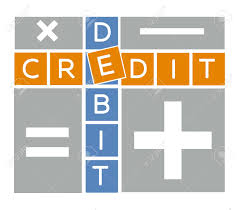There are many ways that a person can end up in debt. Some of them, like the unexpected loss of a job or a dramatic change in circumstances, can’t be avoided. Some of them, like spending more than you earn and relying on credit, can. The problem with overspending is that we don’t always realize we’re doing it, and we don’t always know that there’s a debt problem building up until it becomes too big to deal with.

As much as we’d all love to have savings in the bank, the reality of modern life is that many of us are living week to week or month to month, and we’d have very little to fall back on in an emergency. Money comes into our bank account when we get paid, and then it’s all gone again by the time our next salary check is due. We plug the gap with borrowing, and then one day, we find that our credit commitments take more of our monthly income than we can afford to pay. Subconsciously, we’ve spent our way into a crisis. This article is about identifying that problem before it happens and taking steps to correct our course. These are the tell-tale signs of an overspending problem.
You’ve Stopped Checking Your Bank Account
When you walk up to an ATM and put your card and your code into the machine, what’s the first thing you do? Do you check your balance to see how much you can spend, or do you just go straight to the withdrawal screen and hope that the ATM is going to bless you with money? If you’re one of the people who do the former, you might be avoiding facing the reality of your financial situation. Fear of checking bank balances is a known phenomenon. Some statistics suggest that up to a third of adults aged between 20 and 40 never look at their balance at all. If you never double-check your balance, or you avoid reviewing your online banking app, you’re subconsciously burying your head in the sand. Always be aware of where you’re up to and what you’ve spent. Some of your expenditures might shock you, but the shock is the first step to changing your ways.
You Never Think About Retirement

All of us have plans for the future, but most of those plans involve holidays, bigger houses, bigger cars, or other desirable material aspirations. Far fewer of us think about retirement, and that’s often because we can’t visualize it. We all know we’ll need money to live off in old age, and we’re all also aware that government support isn’t going to replace your salary or make ends meet. You might convince yourself that you’ll just work until you die, but that isn’t always a viable option, and you should want better for yourself in any case. If you’re not planning for retirement, it’s probably because you’re not providing for it – and if you’re not providing for it, you’re probably spending potential savings and retirement money elsewhere.
You’re Gambling More Than Normal
Whether consciously or unconsciously, one of the cruelest games we play with ourselves when we’re overspending is to kid ourselves that we can make the money back somehow. If our salaries don’t allow for this, we’re inclined to go looking in other places. One of those places is the gambling industry. There is absolutely nothing wrong with betting on sports or playing online slots so long as you’re doing it responsibly, and with money you can afford to lose. If you’ve always been an occasional gambler but you’ve recently found yourself spending more on the lottery or at online slots websites, it’s possible you’re doing so in the unconscious hope of winning back money you shouldn’t have spent in the first place. The only good reason to play slots 2020 is for fun and entertainment. Doing so compulsively or because you desperately need a win from somewhere is a sign of a developing problem.
You Never Clear Your Credit Balance

Credit cards and overdrafts are a great way of getting access to extra money when you need it for a large purchase or to cover an unexpected expense. Once that expense has been dealt with, your objective should always be to clear that balance as quickly as possible. If you don’t, you’ll start accruing interest on top of the balance and end up paying back far more than you borrowed. So long as we’re maintaining the minimum repayments due on our credit commitments, it’s easy for us to fool ourselves that we don’t have a debt problem because we’re not technically ‘behind’ with anything. In reality, minimum payments barely shift the balance we owe, and we’re trapping ourselves in debt long term. If it isn’t possible for you to pay more than the minimum repayment, it’s time to review your expenditure and see where you can cut back.
Your Mortgage Or Rent Swallows Most Of Your Paycheck
Wanting to live somewhere nice is a perfectly understandable human desire. The more you’re willing or able to pay, the nicer the home you live in will be. Just because you can gain approval for a certain level of mortgage or rent repayment doesn’t mean you should do it, though. There are people who spend up to forty percent of their paycheck on their rental or mortgage repayments, and that’s too much. They’re a rent increase or an interest rate change away from total financial disaster. You probably don’t want to think about downsizing, but consider the benefits of doing so if your living expenses are stretching you to breaking point. Think of all the money you’d save. You can always ‘go bigger’ again if you receive a pay rise or a positive change in circumstances in the future. Always aim to ensure that whatever you pay for housing doesn’t exceed more than a quarter of your income.
There are occasions when no amount of cost-cutting or planning will help, and you’ll need to seek professional advice and support to get your finances back on track. For overspending problems, though, it’s often just a case of developing an awareness of what you’re spending and keeping a tighter rein on it. Don’t be afraid of your bank account. Take control of it today, and start planning for a brighter financial future.
Categories: General
Leave a Reply